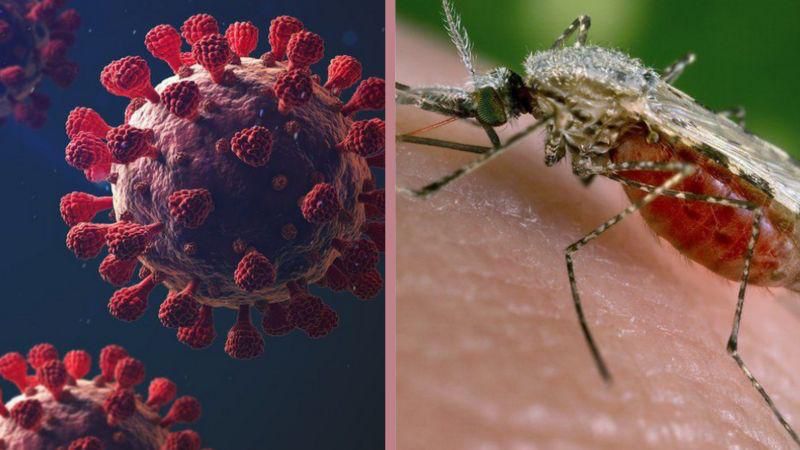The West African Center for Cell Biology of Infectious Pathogens (WACCBIP) has proposed a hypothesis explaining the rationale behind low COVID-19 deaths recorded in Africa during the pandemic.
The Center believes that the prevalence of Malaria especially in Sub-Sahara Africa played a pivotal role in protecting the continent from severe impacts of COVID-19.
It would be recalled that many theories have been postulated in the heat of the outbreak to unravel low global deaths due to covid-19 in Africa.
Many postulants were unsuccessful in substantiating their theories with scientific evidence backed by empirical data.
Three top claims circulated during the pandemic include the ideas that millions of COVID-19 deaths in Africa were not reported, the SARS-COV-2 virus was weakened by the hot weather in tropical regions and Africans possibly developed a robust immune system built from bombardment by various pathogens.
Others suggested Africa’s younger population considering the age factor as believers and churches relied and emphasized divine intervention from COVID-19.
In a rather grandiose inaugural lecture held at the Great Hall, University of Ghana, WACCBIP Founding Director, Prof. Gordon Awandare connected the dot between Malaria and COVID-19.
Prof. Awandare who doubles as the Pro Vice-Chancellor in charge of Academic and Students’ Affairs (UG) juxtaposed a map showing global Malaria prevalence cases per 100,000 against global COVID-19 deaths per 100,000.
He clarified that COVID-19 deaths outstandingly low in sub-Saharan Africa, adding that low COVID-19 deaths overlaps significantly with high malaria prevalence.

“Look at it! Isn’t it beautiful? Where you see no COVID-19 deaths, that’s where Malaria is intense. Just look at it! You can superimpose them [COVID-19 deaths & Malaria prevalence maps]. So this was very interesting to us because this is not a coincidence,” Prof. Awandare said on June 8, 2023.
According to him, the center then decided to delve into theories of tolerance to advance what is now popularly known as the Awandare Hypothesis.
“I have convinced you that, Malaria is not such a curse. That after repeated exposure to Malaria, we’ve learnt how to tolerate Malaria or we’ve learnt how to ignore the parasite. The way we learnt how to ignore the parasite, we used the same knowledge to ignore the COVID-19 virus. And that’s why we didn’t die, that’s why there were no dead bodies on the street, that’s why our hospital did not collapse,” he advanced.
Profile

Gordon Akanzuwine Awandare is a Professor of Biochemistry, Cell and Molecular Biology.
He is also the Founding Director of the West African Centre for Cell Biology of Infectious Pathogens (WACCBIP), University of Ghana, and a visiting Professor at the Faculty of Health and Life Sciences, Oxford Brookes University, Oxford, UK.
Gordon Awandare completed his O’level in 1991 at Notre Dame Seminary Secondary School, Navrongo and A’level in 1993 at Presbyterian Boys Secondary School, Legon.
He then obtained his Bsc Biochemistry in 1998 and MPhil Biochemistry in 2002 at the University of Ghana, Legon.
Subsequently he obtained a PhD in Infectious Diseases and Microbiology from the University of Pittsburgh, Pennsylvania, USA in 2007.
After obtaining his PhD in 2007, Gordon Awandare worked as a Scientist at the Division of Malaria Vaccine Development of the Walter Reed Army Institute of Research, Silver Spring, Maryland until 2010 when he returned to the University of Ghana to establish his research group.
He was promoted to Senior Lecturer in 2011, Associate Professor in 2015 and Professor in 2018. He was Head of Department of Biochemistry, Cell and Molecular Biology from 2013 to 2017.
In 2014, he led the establishment of WACCBIP after winning one of the World Bank’s African Centres of excellence grants and became the Founding Director of the centre.
He was appointed Pro Vice-Chancellor for Academic and Student Affairs, University of Ghana in December 2021 and assumed office in January 2022.
–
Story by | Eli Djomekou | univers.ug.edu.gh





